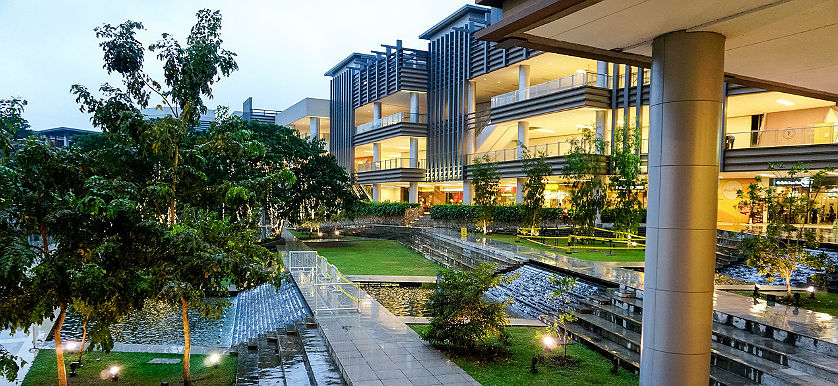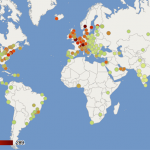Philippines – between economic performance and human development

The Philippines economic growth has accelerated in 2015 and remained in an ascending trend until now. But is economic performance all it takes to consider a country a good example of managing performance at national level? Recent research argues that “economic growth itself will not be sustained unless preceded or accompanied by improvements in human development.”
Several reports revealing the performance of countries in different fields released this year, outline the economic development, but a decrease in human capital investments in the Philippines. In terms of economic freedom and global competitiveness, we can notice an increase in the Philippines’ score, while the corruption index and human capital development show a decrease in these two areas.
The # Index of Economic Freedom assesses the degree of advancement in economic freedom, based on the severity and number of government policies, taxes and regulations in 186 countries in accordance to 12 measures of economic freedom. The increase of economic freedom is linked to declines in poverty, sickness and inequality of income.
The index focuses on four major aspects which exert influence on a nation’s economic freedom: rule of law, government size, regulatory efficiency and market openness and measures metrics such as trade freedom, business freedom, investment freedom, and the degree of property rights protection.
Out of the 12 metrics measured by the index, Philippines scored high in “property rights, government integrity, regulatory efficiency, and monetary freedom”, and scored low in “government spending and tax burden”.

The second index showing an improvement in Philippines’ development is # Global competitiveness. This assesses the competitiveness degree of global economies based on 12 pillars in order to understand what drives their productivity and prosperity.
The # Global Competitiveness Index classifies global economies by their ability to efficiently employ resources in order to ensure the wellbeing and prosperity of their citizen. The # Global Competitiveness Index serves as an objective tool to be used by governments, the private sector and the civil society to increase future welfare.
The World Economic Forum defines competitiveness as “the set of institutions, policies, and factors that determine the level of productivity of an economy, which in turn sets the level of prosperity that a particular country can achieve”.
Although the government is seen as able to drive productivity and prosperity, it is still considered corrupt and less oriented on human development. The score of Philippines dropped 6 points in what concerns corruption and one place in the Human Capital Index.
The # Corruption Perception Index analyzes the corruption level worldwide by standardizing data reported by different organizations and comparing countries against each other. Corruption is an important item of the international affairs agenda, as it has been responsible for holding back countries in the journey towards prosperity.
The # Corruption perception Index allows the assessment of citizens’ opinions on their government. The index is a reflection of the key stakeholders’ perception, but it also incorporates expert opinions, business people and analysts.
Human Capital Report ranks the performance of 130 countries based on their efforts to develop their human capital using four dimensions: capacity, deployment, development and know-how. The assessed groups are split in five age groups: 0–14 years; 15–24 years; 25–54 years; 55–64 years; and at least 65 years old. # Human Capital Index is considered a tool to assess progress within countries and points to opportunities for cross-country learning and exchange.
Given the decrease in human capital development, officials from Philippines admitted that there is a need to develop workers, as “workers are the primary force of economy”. Hence, we can conclude that Philippines officials acknowledge the need of a balance between performance in both areas and strengthen the need of measuring performance at country level through aggregated measures such as indexes as they:
- present the current results;
- enable benchmarking with other countries;
- drive performance improvement.
Image sources:

Tags: Economic performance, Government performance, Human Resources, Performance in Philippines




